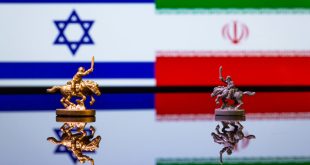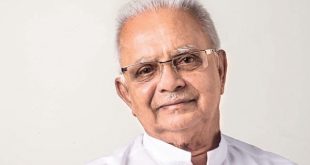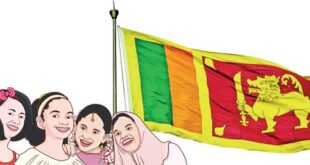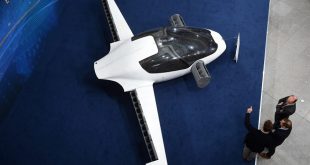Britain has a Conservative prime minister after 13 years of Labour governments. For the first time since World War II, Britain is governed by a coalition after the May 6 elections produced a hung parliament. The coalition came into being after days of painstaking talks between the Conservative Party, which emerged as the largest party in the House of Commons, and the Liberal Democrats, the third force in British politics.
The Conservative-Lib Dem union was seen by some analysts as politically a wrong mix. But history shows that the present Conservative Party is itself the outcome of a union in the early 20th century between a Liberal Party faction that opposed home rule for Ireland and the old Tory Party, founded in 1678. Ever since this merger, the Tory Party came to be known as the Conservative and Unionist Party or, more commonly, the Conservative Party.
History also shows that the Conservatives played a junior role in an all-party coalition led by Liberal Prime Minister David Lloyd George after World War I.
The Liberal Democratic Party is also an amalgam that came into being in 1988 when the mainstream Liberal Party merged itself with the Social Democratic Party, a breakaway group of the Labour Party. Though political unions in the past were largely based on ideological or policy grounds, the present Conservative-Lib Dem coalition is essentially a marriage of convenience. Despite major differences over electoral reforms and policies on economy, education and the public sector, the marriage was made possible because each mainstream political party has at least a little bit of the other two. The Labour Party, for instance, became as right wing as the Conservative Party under Tony Blair and Gordon Brown while the Lib Dems have mixed their libertarian ideals with Labour's welfare state. The Conservatives have moved from the right to centre to ditch their aristocratic outlook and woo the working class while adopting the Liberal's laissez faire policies.
Thus a change of government in Britain is unlikely to produce a radical change in British domestic politics or its foreign policy, though new Prime Minister David Cameron has vowed a seismic shift in how the country is governed.
.jpg) When Tony Blair was elected prime minister in a 1997 landslide victory that began the 13-year Labour rule after an 18-year right wing Tory reign, many expected the new government to govern in accordance with Labour's socialist principles. But Blair's Labour merely carried on with Thatcherism — a name given to the economic and social policy pursued by Conservative Prime Minister Margaret Thatcher from 1979 to 1990.
When Tony Blair was elected prime minister in a 1997 landslide victory that began the 13-year Labour rule after an 18-year right wing Tory reign, many expected the new government to govern in accordance with Labour's socialist principles. But Blair's Labour merely carried on with Thatcherism — a name given to the economic and social policy pursued by Conservative Prime Minister Margaret Thatcher from 1979 to 1990.
Thatcherism stood for deregulation and privatization of state-run businesses and utility services. Believing that deregulation, privatization and pro-business measures would lead to economic prosperity, Thatcher adopted an authoritarian social policy that had little tolerance for trade union actions. In short, economy — not social welfare — became the pivot of the government.
The Thatcherites argued that unless there was a radical change of course, Britain would be reduced to a banana republic in Europe and it would lose its international stature. While economic liberalization shaped Thatcherism at home, with public expenditure and the size of the public sector being drastically slashed, at international level, it was an aggressive, if not belligerent, foreign policy that gave form to Thatcherism. The Thatcherist belligerence was seen not only in the Falklands war but also in Thatcher's open support to Ronald Reagan — the then US President whose regime was known for its arrogant militarism. It was during his tenure that the International Court of Justice found the US guilty of mining the territorial waters of Nicaragua. Reagan backed Saddam Hussein's illegal war on neighbouring Iran. During his reign the US bombed Libya and shot down an Iranian civilian aircraft with more than 250 passengers.
The Labour Party that came to office in 1997 did not end Thatcherism. It betrayed the working class people who voted the party into office after it had faced successive defeats at general elections. Under the label "New Labour", Blair continued the Thatcherist policies of privatization and deregulation. In its foreign policy, the Labour government became a mere appendage of the United States. Thatcher, at least, had the courage to disagree with the US. She opposed the US invasion of Grenada in 1983.
.jpg) But the New Labour unreservedly joined the US wars in Iraq and Afghanistan, with Blair being ridiculed as the lapdog of hawkish US president George W. Bush. In its attempt to justify its decision to join the Iraq war, Blair's Labour misled or lied to the British people claiming that Saddam Hussein possessed weapons of mass destruction. Rather the Blair policy turned out to be a weapon of mass deception. But despite the unpopular war, New Labour managed to win a third term of office in 2005. This was because it thrived on Thatcherism that had lured the British people away from socialism which was the core of the old Labour and let them run after materialism where values have little place.
But the New Labour unreservedly joined the US wars in Iraq and Afghanistan, with Blair being ridiculed as the lapdog of hawkish US president George W. Bush. In its attempt to justify its decision to join the Iraq war, Blair's Labour misled or lied to the British people claiming that Saddam Hussein possessed weapons of mass destruction. Rather the Blair policy turned out to be a weapon of mass deception. But despite the unpopular war, New Labour managed to win a third term of office in 2005. This was because it thrived on Thatcherism that had lured the British people away from socialism which was the core of the old Labour and let them run after materialism where values have little place.
Besides lies and deception, Blair's New Labour was also marred with charges of corruption. The cash-for-honours scandal put Labour on the defensive. The Labour Party leadership was accused of granting life peerages to those who either donated or loaned millions of pounds to the party's campaign fund. A long-drawn-out probe exonerated the party leadership but the public and the media were not convinced. They raised questions over Attorney General Lord Goldsmith's impartiality and saw an attempt at politicization of the public service.
Another scandal to hit the Labour government was the kickbacks story involving British Aerospace and a Saudi Arabian royal family member. Blair in 2006 intervened and stopped a Serious Fraud Office investigation into allegations that the company had paid more than £1 billion in kickbacks to Prince Bandar bin Sultan in return for a massive arms deal with Saudi Arabia. The Lib Dems described the scandal as the last nail in the coffin of Labour's so-called ethical foreign policy while the Organisation of Economic Cooperation and Development (OECD) also criticized the British government.
The scandal only added to the growing unpopularity of Blair. He resigned in 2007 amidst indications that Labour was fast losing its ground. The resignation paved the way for Gordon Brown to take over as party leader and prime minister. But he could not stop Labour's slide which was accelerated by its handling of the worst global recession since 1930s. Brown's policy focused on bailing out the banks with billions of public money but offered little hope for hundreds of thousands of people who lost their jobs.
.jpg) The final blow to Labour came when the British media exposed a scandal where dozens of ruling party MPs had used public money to renovate their homes and fund their lavish lifestyles.
The final blow to Labour came when the British media exposed a scandal where dozens of ruling party MPs had used public money to renovate their homes and fund their lavish lifestyles.
The Labour government was not without its positives, however. Apart from economic feats during its first two terms, its greatest achievement was the Northern Ireland peace deal in 1998. Blair and his Labour Party government proved that political crises could also be solved by negotiations.
Post-mortems apart, the task before Britain's first coalition government since World War II is daunting at a time when the world economy is recovering from recession and climate change is threatening our very existence.
The optimists say Prime Minister Cameron's policies on paper indicate a slight shift away from Thatcherism towards the centre. They also say the presence of the Lib Dems led by Nick Clegg in the coalition would and should ensure that Britain will not blindly endorse US hegemony and its military adventures around the world. The presence of Lib Dems in the government, they say, is also a guarantee that the new coalition will have an ethical foreign policy based on freedom, human rights and individual liberty and there will be a drastic change in the British electoral system. Others say let's wait and see.
 Sri lanka Muslims Web Portal Diversity and Inclusiveness
Sri lanka Muslims Web Portal Diversity and Inclusiveness



